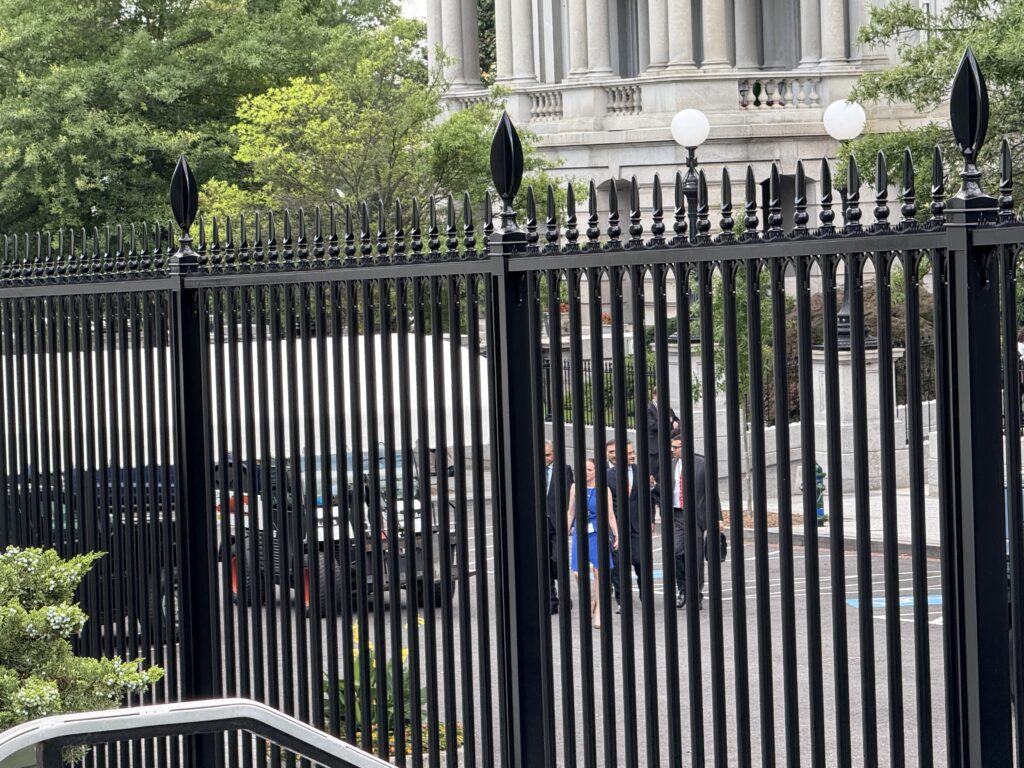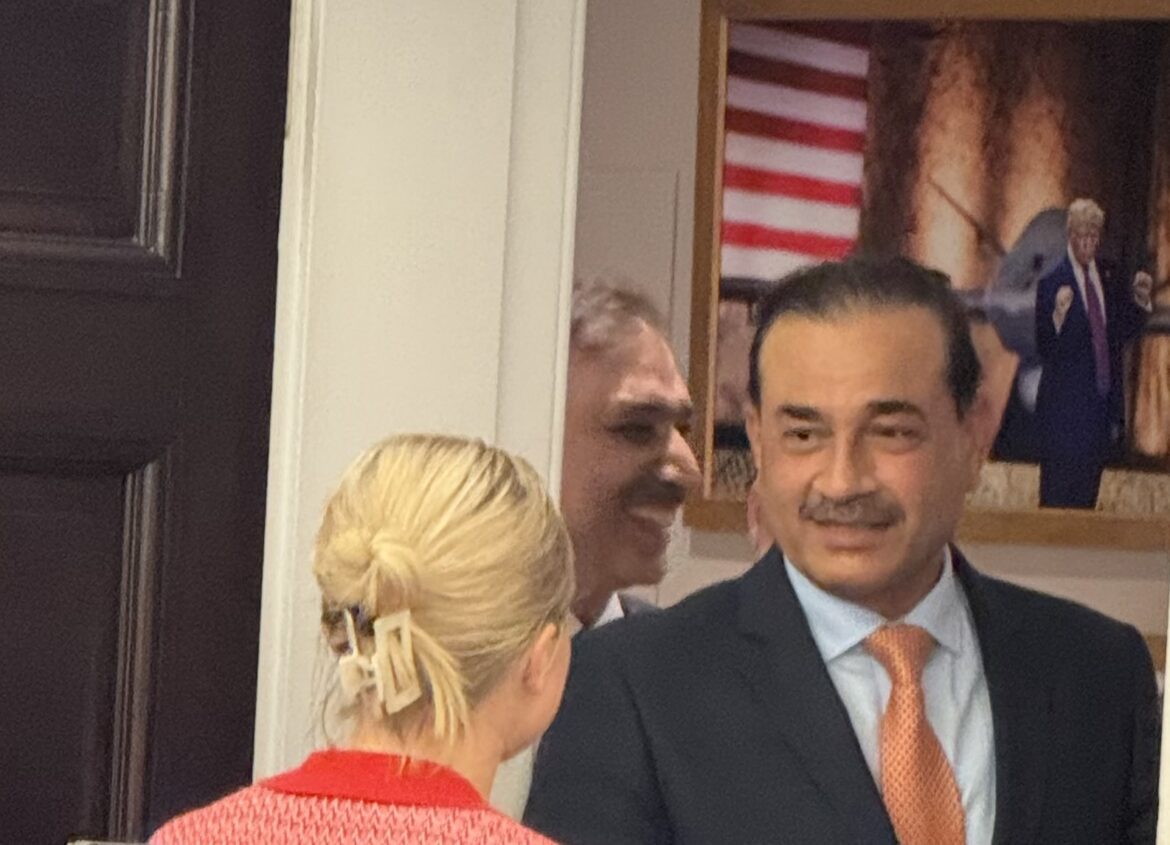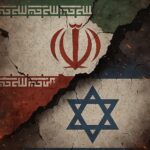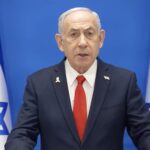In an unprecedented development, U.S. President Donald Trump hosted Field Marshal Syed Asim Munir, Chief of the Army Staff of Pakistan, for a closed door luncheon at the White House on June 18, 2025.
This marked the first time a U.S. president has formally hosted the head of Pakistan’s powerful military, and the meeting came amid renewed India-Pakistan tensions following the April 22 Pahalgam terror attack. The meeting is also significant in the wake of India’s response targeting terrorist infrastructure within Pakistan, and the subsequent ceasefire between India and Pakistan. The meeting also occurred against the backdrop of escalating Israeli strikes on Iran, with which Pakistan shares a nearly 1,000-kilometre border.
Ahead of the meeting, White House Deputy Press Secretary Anna Kelly said in a statement: “President Trump will host Field Marshal Munir after he called for the President to be nominated for the Nobel Peace Prize for preventing a nuclear war between India and Pakistan.”
Speaking to reporters on the White House South Lawn, on June 18, President Trump said, “Well, I stopped the war between Pakistan and India. I love Pakistan. I think Modi is a fantastic man. I spoke to him last night. We’re going to make a trade deal with Modi of India.”
He added, “This man [General Munir] was extremely influential in stopping it from the Pakistan side, Modi from the India side, and others, and they were going at it. And they’re both nuclear countries. I got it stopped.”

However, India offered a different account of the events leading to the de-escalation. In a press statement, on June 18, India’s Foreign Secretary Vikram Misri described a 35-minute telephone call between Prime Minister Narendra Modi and President Trump held on June 17.
Misri emphasized, “Prime Minister Modi firmly stated to [President Trump] that India does not and will never accept mediation. There is complete political consensus in India on this matter.”
Misri clarified that communication to cease military operations took place directly between Indian and Pakistani armed forces, initiated at Pakistan’s request. He further disclosed that Vice President JD Vance had alerted Prime Minister Modi on the night of May 9 about a potential large-scale Pakistani attack. PM Modi, according to Misri, responded by warning that India would retaliate with greater force if provoked.
Misri said Prime Minister Modi conveyed to President Trump that on the night of May 9–10, Indian forces carried out a decisive counteroffensive that rendered multiple Pakistani military airbases inoperable. As a result of this action, Pakistan sought to halt further hostilities.
He also stated that Prime Minister Modi “clearly conveyed to President Trump that at no point during this entire sequence of events was there any discussion, at any level, on an India-U.S. Trade Deal, or any proposal for a mediation by the U.S. between India and Pakistan.”
Misri explained the phone call was scheduled as a substitute for an in-person meeting that was expected to take place on the sidelines of the G7 Summit. President Trump’s early return to Washington precluded that meeting.
During the phone conversation, President Trump expressed support for India’s counterterrorism efforts “Prime Minister Modi also stated that India no longer views terrorism as a proxy war, but as a war itself, and that India’s Operation Sindoor is still ongoing,” Misri added. He said President Trump had asked if Modi could stop in the U.S. on his return from Canada, but the Prime Minister declined due to prior commitments. Both leaders agreed to seek a future opportunity to meet.
Misri recalled that President Trump had earlier called Prime Minister Modi to express condolences after the April 22 terrorist attack in Pahalgam and reiterated his support against terrorism.
This was the first official conversation between the two leaders since the attack, Misri noted. During the call, Modi reportedly briefed Trump in detail on India’s military response under Operation Sindoor.
“Prime Minister Modi said that on the night of May 6-7, India had only targeted the terrorist camps and hideouts in Pakistan and Pakistan-occupied Kashmir. India’s actions were very measured, precise, and non-escalatory,” said Misri. “India had also made it clear that any act of aggression from Pakistan would be met with a stronger response.”
The two leaders also discussed regional and global developments, including the ongoing Israel-Iran conflict and the war in Ukraine. Both agreed that resolving the Russia-Ukraine crisis requires direct dialogue and that efforts toward peace should continue.
In relation to the Indo-Pacific region, they affirmed the importance of the QUAD partnership. “Prime Minister Modi extended an invitation to President Trump to visit India for the next QUAD Summit. President Trump accepted the invitation and said that he is looking forward to visiting India,” Misri said.
When asked by White House reporters on June 18 whether the U.S. was preparing to strike Iranian nuclear facilities, President Trump replied, “I may do it, I may not do it – nobody knows what I’m going to do… I can tell you this, that Iran’s got a lot of trouble, and they want to negotiate.”
To a follow-up question on whether he had issued an ultimatum to Iran, Trump answered, “You could say so. Maybe you could call it the ultimate ultimatum.”
Addressing internal criticism from within his MAGA political base over potential U.S. involvement in Iran, Trump remarked, “My supporters are more in love with me today than they were even at the election,” adding, “So I may have some people that are a little bit unhappy now, but I have some people that are very happy. We have people outside of the base that can’t believe that this is happening, they’re so happy.”






